Program:
| 15:30 | Welcome | Prof. Paulo Menezes and Prof. Filippo Cavallo |
| 15:40 | Adapting Robots to Ethical Contexts | Prof. Vivek Nallur |
| 16:00 | Medical and surgical robotics: can the potential be fulfilled? | Md. Dr. Ricardo Pereira |
| 16:20 | Tech for Good: Social Challenges to Solve, Wellbeing Opportunities to Seize | Dr. Yousif Al Zaabi |
| 16:40 | -- Coffee Break -- | |
| 17:00 | Interaction science of human and humanoid for well-being | Prof. Eiichi Yoshida |
| 17:20 | PMRs in Hospitality: Innovation in the Service of Society | Dr. Francisco Javier Martin Romo |
| 17:40 | Pharaon robotic pilots for active and healthy ageing | Prof. Filippo Cavallo |
| 18:00 | Panel discussion with the Speakers | Moderator: Prof. Paulo Menezes |
| 18:30 | Closing |
Keynotes:
Talk 1: Adapting Robots to Ethical Contexts
Abstract: The common consensus is that robots designed to work alongside or serve humans must adhere to the ethical standards of their operational environment. To achieve this, several methods based on established ethical theories have been suggested. Nonetheless, numerous empirical studies show that the ethical requirements of the real world are very diverse and can change rapidly from region to region. This eliminates the idea of a universal robot that can fit into any ethical context. However, creating customised robots for each deployment, using existing techniques is challenging. This talk presents a way to overcome this challenge by introducing a virtue ethics inspired computational method that enables character-based tuning of robots to accommodate the specific ethical needs of an environment. Using a simulated elder-care environment, I will illustrate how tuning can be used to change the behaviour of a robot that interacts with an elderly resident in an ambient-assisted environment.
 Prof. Vivek Nallur, University College Dublin (UCD), Dublin, Ireland
Prof. Vivek Nallur, University College Dublin (UCD), Dublin, Ireland
Short Bio: I work in the area of Machine Ethics. I am interested in how to implement and validate ethics in autonomous machines. Questions such as what kinds of ethics would the use of autonomous machines result in, how would we ensure that individually ethical machines don't combine to produce un-ethical behaviour, are interesting to pose and answer computationally. This is, by nature, an inter-disciplinary thread and I am quite interested in collaborating with researchers in the field of philosophy/law/politics etc. I am also very interested in complex self-adaptive systems, engineering emergent feedback loops, and predicting and controlling emergence in socio-technical systems. Multi-Agent Systems (MAS) are my preferred tool for approaching problems in self-adaptation, complexity, emergence, etc. They lend themselves to extensive forms of experimentation: having all agents follow simple rules, implementing complex machine-learning algorithms, and investigating the interplay of different algorithms being used at the same time, are all possible with relatively simple conceptual structures.
Talk 2: Medical and surgical robotics: can the potential be fulfilled?
Abstract: There is an increased awareness in the medical and surgical community on the role of robotics in advancing patient care, with well-known present applications, but also many expectations on what the future can bring.
Coming from a starting point in the way robotics has been influential in the field of surgery, and particularly neurosurgery, we review the available systems and the way they help us in improving surgical results, but also the hurdles that would have to be overcome in order to fulfill the potential we believe exists.
Surgical training is also another keypoint to address in terms of robotic usage.
Expanding from the purely technical aspects of surgery, we hypothesize on the way robotics could help in patient interaction outside the operating room, either on patient surveillance or rehabilitation.
One final topic will be the question of accessing the central nervous system through non- or less-invasive approaches, like endovascular or CSF pathways, and how could robotics achieve such goals.
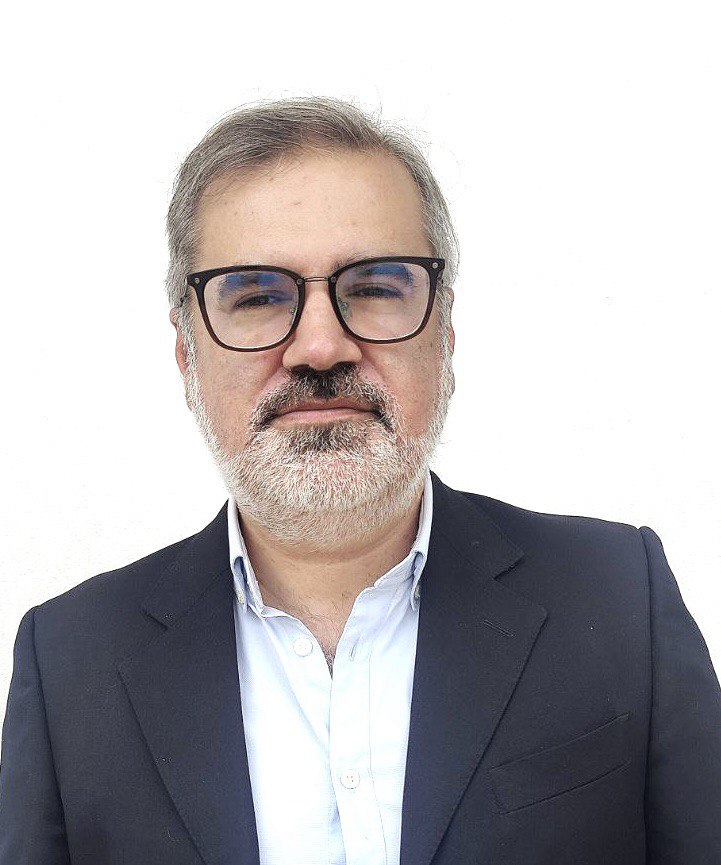 Md. Dr. Ricardo Pereira, Coimbra University Hospital Medical Center, Portugal
Md. Dr. Ricardo Pereira, Coimbra University Hospital Medical Center, Portugal
Short Bio: I’m a Neurosurgeon Consultant and current Head of Stereotactic and Functional Neurosurgery at the Coimbra Hospital University Center.
My clinical work is mainly on deep brain stimulation, epilepsy surgery, spinal cord stimulation and pain treatment.
Some of my early research work focused on flow dynamics of cerebral blood vessels, mechanotransduction and brain aneurysms.
This resulted in publications on papers in indexed journals on areas that range from Neurosurgery to Applied Mathematics.
My current interests are related to image guided surgery, robotics in neurosurgery and AR/VR in neurosurgical training and planning.
For several years I was an Invited Teaching Assistant at the University of Coimbra and supervised several master’s theses.
I am an active member of various neurosurgical and neuromodulation societies and serve as an Associate Editor for Sinapse and a reviewer for European Neurology and BMJ Case Reports.
Talk 3: Tech for Good: Social Challenges to Solve, Wellbeing Opportunities to Seize
Abstract: Advancements in robotics and technology are revolutionizing the social sector, offering innovative solutions to enhance the quality of life for the elderly, youth, families, people with disabilities, and those facing mental health challenges. Robotics are empowering the elderly with increased independence, safety, and reduced isolation. In youth development, tech-enabled tools provide educational support and help address mental health needs, fostering resilience. Assistive robotics are breaking barriers for individuals with disabilities, enhancing independence and participation in daily life. Additionally, interactive technologies can foster meaningful family connections, improving the quality of time spent together.
Nevertheless, some key challenges in implementing robotics and advanced technologies for social wellbeing exist. They include high costs, limited accessibility, and concerns over data privacy and ethical use. Integrating these innovations into existing systems is slow, and there is a lack of trained professionals to operate and maintain them, further hindering widespread adoption.
To fully realize the potential of these technologies, it is crucial to create synergies, common understanding, and partnerships with different ecosystem actors. Together, they can create inclusive, ethical, and accessible solutions that address the wellbeing challenges facing our diverse populations and transform the future of care.
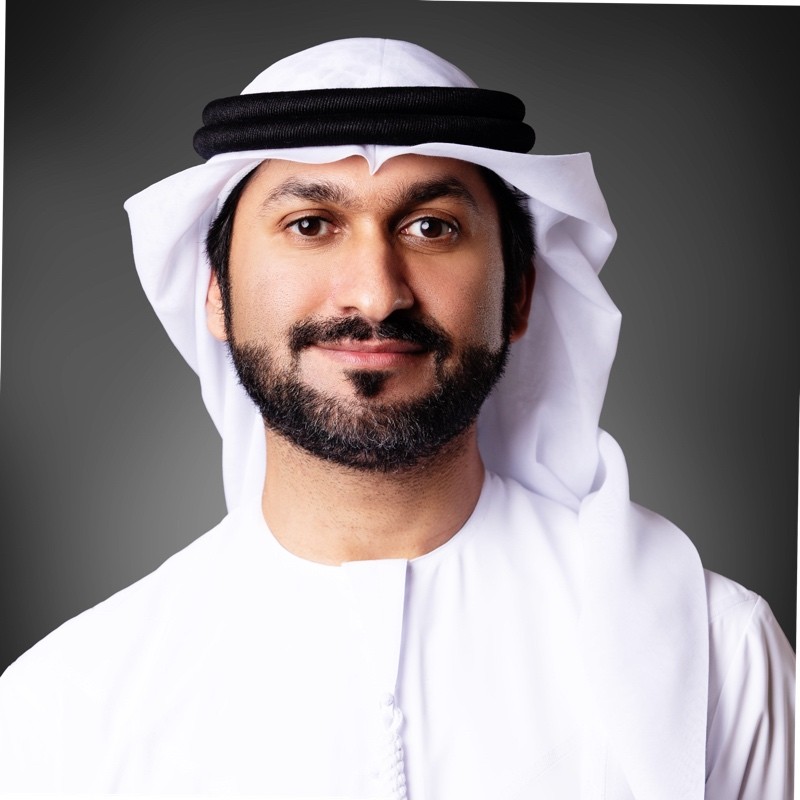 Dr. Yousif Al Zaabi, Department of Community Development Abu Dhabi, UAE
Dr. Yousif Al Zaabi, Department of Community Development Abu Dhabi, UAE
Short Bio: Dr. Yousif received his bachelor from University of Sharjah in dental surgery. He is a firm believer of lifelong learning. He studied multiple masters in the areas of healthcare management, public health, and business management. He was the Vice Chairman of the Department of Health Abu Dhabi Youth Council and a Certified Foresight Practitioner (CFP). He also led the AI and innovation lab in the Department of health with the aim to transform healthcare delivery and excellence for the population in Abu Dhabi. His passion advanced his career in healthcare landing him in the Public Health division of the Department of Health Following his belief in giving back to the community. He established the foresight and futures studies function in the Department of Health to study local and global healthcare futures. He left the Department of Health as their Director of Digital Health, where he engaged with the wider ecosystem in accelerating Abu Dhabi’s digital health agenda. Yousif recently joined the Department of Community Development based on his passion for social impact. He leads the social innovation division in the department. Yousif believes in good design (for everyday life), and he is a passionate practitioner of design thinking. He also believes in transforming how value is created in ecosystems, from products and services to platforms creation and digital network orchestration.
Talk 4: Interaction science of human and humanoid for well-being
Abstract: We are currently witnessing outburst of progress in AI, which starts contributing to our society in many aspects. Robots have been used mainly in industry but now we can see robots offering diverse services, such as delivery, cleaning, life support and communication. Along with this integration of those service robots, humanoid robots are becoming more and more common as many companies release their agile and robust robots. While their performance is impressive, there are still open questions about what they will bring for our well-being. Humanoid robots are said to be easy to adapt to the environments designed for human and to interact with human thanks to their appearance. For humanoid robots to be truly useful in our society and well-being, I think these features should be questioned from interaction perspective. Smooth physical interaction, understanding human intent and anticipating future behavior, and creating adaptive and symbiotic behaviors to be trusted. Although studies on those topics are still at early stage, I will discuss potential developments in future based on my research experience.
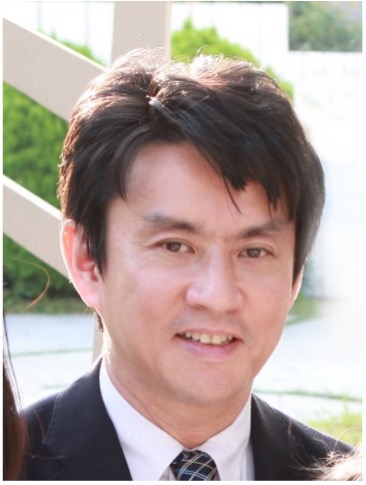 Prof. Eiichi Yoshida, Tokyo University of Sciences, Tokyo, Japan
Prof. Eiichi Yoshida, Tokyo University of Sciences, Tokyo, Japan
Short Bio: Eiichi Yoshida is a Professor at Tokyo University of Science (TUS), at Department of Department of Medical and Robotic Engineering Design, Faculty of Advanced Engineering since 2022. He received M.E and Ph. D degrees in Precision Machinery Engineering from the Graduate School of Engineering, the University of Tokyo in 1996. He then joined the former Mechanical Engineering Laboratory, later in 2001 reorganized as National Institute of Advanced Industrial Science and Technology (AIST), Tsukuba, Japan. He served as Co-Director of AIST-CNRS JRL (Joint Robotics Laboratory) at LAAS-CNRS, Toulouse, France, from 2004 to 2008, and at AIST, Tsukuba, Japan from 2009 to 2021. He was also Deputy Director of Industrial Cyber-Physical Systems Research Center, and TICO-AIST Cooperative Research Laboratory for Advanced Logistics in AIST from 2020 to 2021 before joining TUS. He is IEEE Fellow, and a member of RSJ, SICE, and JSME. He received several awards including Best Paper Award in Advance Robotics Journal, and the honor of Chevalier l’Ordre National du Mérite from French Government. His research interests include robot task and motion planning, human modeling, humanoid robotics and advanced logistics technology.
https://www.rs.tus.ac.jp/yoshida-lab/en/index.html
Talk 5: PMRs in Hospitality: Innovation in the Service of Society
Abstract: Robotics will be an essential element in maintaining our current standard of living and the competitiveness of businesses. The service sector—particularly tourism, hospitality, and food service—is crucial for the GDP of many countries. This sector faces numerous challenges, such as a structural staff shortage, especially qualified personnel. Robotics could be a key element to support professionals, optimize operations, and improve efficiency by automating thousands of purely logistical, mechanical, and repetitive tasks.
Thousands of robots will soon be present in our public spaces, performing indoor and outdoor transport, cleaning, and security missions. Educating ourselves and establishing a framework of rules and behaviours for their integration and proper deployment is essential.
During this presentation, we will analyze the current status and trends of PMRs (Public-area Mobile Robots) in the hospitality and foodservice sector, as well as the future impact they may have on customer experience and the quality of work for professionals in the industry.
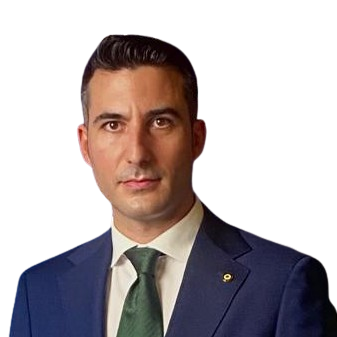 Dr. Francisco Javier Martin Romo - Keenon Robotics, Italy
Dr. Francisco Javier Martin Romo - Keenon Robotics, Italy
Short Bio: Francisco Javier Martín Romo, born in Salamanca, Spain, is a technology enthusiast with a passion for robotics. He firmly believes in the positive impact that automation can have on people's lives and work. Francisco holds a degree in Law from the University of Salamanca, an MBA in Business Administration, and has pursued further training in robotics and artificial intelligence.
His career began in hospitality, developing in destinations such as London, Dubai, and Oman. In 2015, an encounter with the Moley Robotics project in London sparked his interest in the application of robotics in services. This led him to found the "Hospitality Robotics Group" in 2019, one of the first digital communities focused on automation in the service sector.
Currently, Francisco is the Country Manager of Keenon Robotics EMEA and leads the organization of the "Foodservice Robotics Pioneers" summit, held annually at HIP in Madrid since 2020.
Talk 6: Pharaon robotic pilots for active and healthy ageing
Abstract: The deployment of assistive robots in real-world environments has the potential to promote active and healthy ageing, enabling older adults to maintain autonomy and improve their quality of life. This presentation concerns a comprehensive methodology for the development and deployment of assistive robotic systems tailored to the needs of elderly users. The approach begins with a detailed user needs analysis to ensure the robots' functionalities align with the specific requirements of the target population. Service orchestration is employed to coordinate and integrate the robot within existing care routines. A structured training phase is designed for both older adults and caregivers to ensure usability and smooth interaction. The system is subjected to a pre-evaluation phase, followed by a thorough evaluation using statistically relevant metrics to assess its impact. Finally, the results are analyzed to measure the effectiveness of the system in enhancing users’ health outcomes, autonomy, and overall well-being. Finally critical insights into the design, deployment, and evaluation processes of assistive robotics aimed at fostering active aging in real-world environments are discussed.
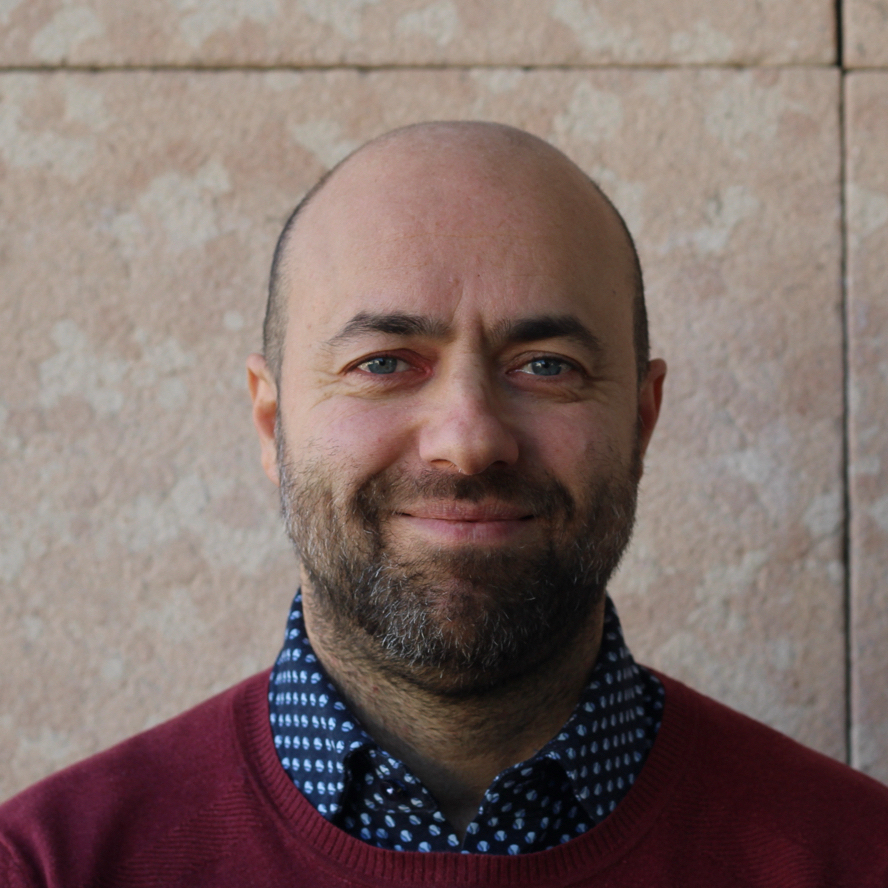 Prof. Filippo Cavallo, University of Florence, Firense, Italy
Prof. Filippo Cavallo, University of Florence, Firense, Italy
Short Bio: Filippo Cavallo is Associate Professor in Biomedical Robotics and Biomechatronics at the University of Florence, Department of Industrial Engineering, Florence, Italy. The objectives of his research activities are to promote and evaluate novel service robotics for active and healthy ageing, to identify and validate disruptive healthcare paradigms for neurodegenerative and chronic diseases, focusing on prevention and support for physical and cognitive declines, to optimize the management of working life for improving efficiency, security and QoL of workers in industrial settings. The main scientific and technological challenges concern social robotics, human robot interaction, wearable sensors, Internet of Things and artificial intelligence for robot companion and healthcare applications. He participated in various National and European projects, and he is currently principal investigator of the Olimpia Project about Parkinson disease, Pharaon project on pilots for active and healthy ageing, and scientific responsible of different actions in the Italian Recovery and Resilience plan. He is Editorial Board member of different international journals, member of the scientific committees of several conferences and author of more than 200 papers on conferences and ISI journals.
Partner Entities:
 |
 |
|
 |
 |
Projects:
 |
 |
 |


